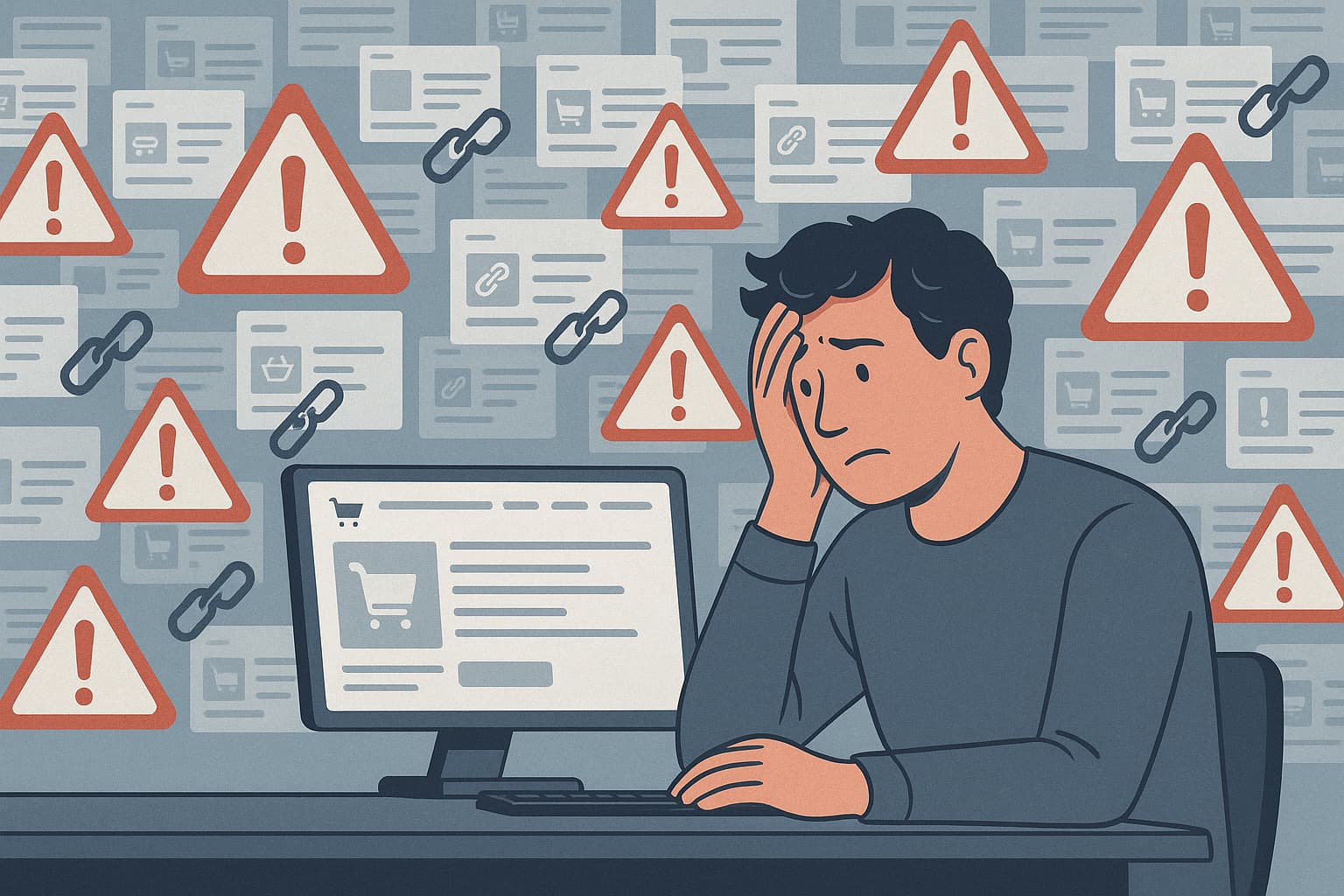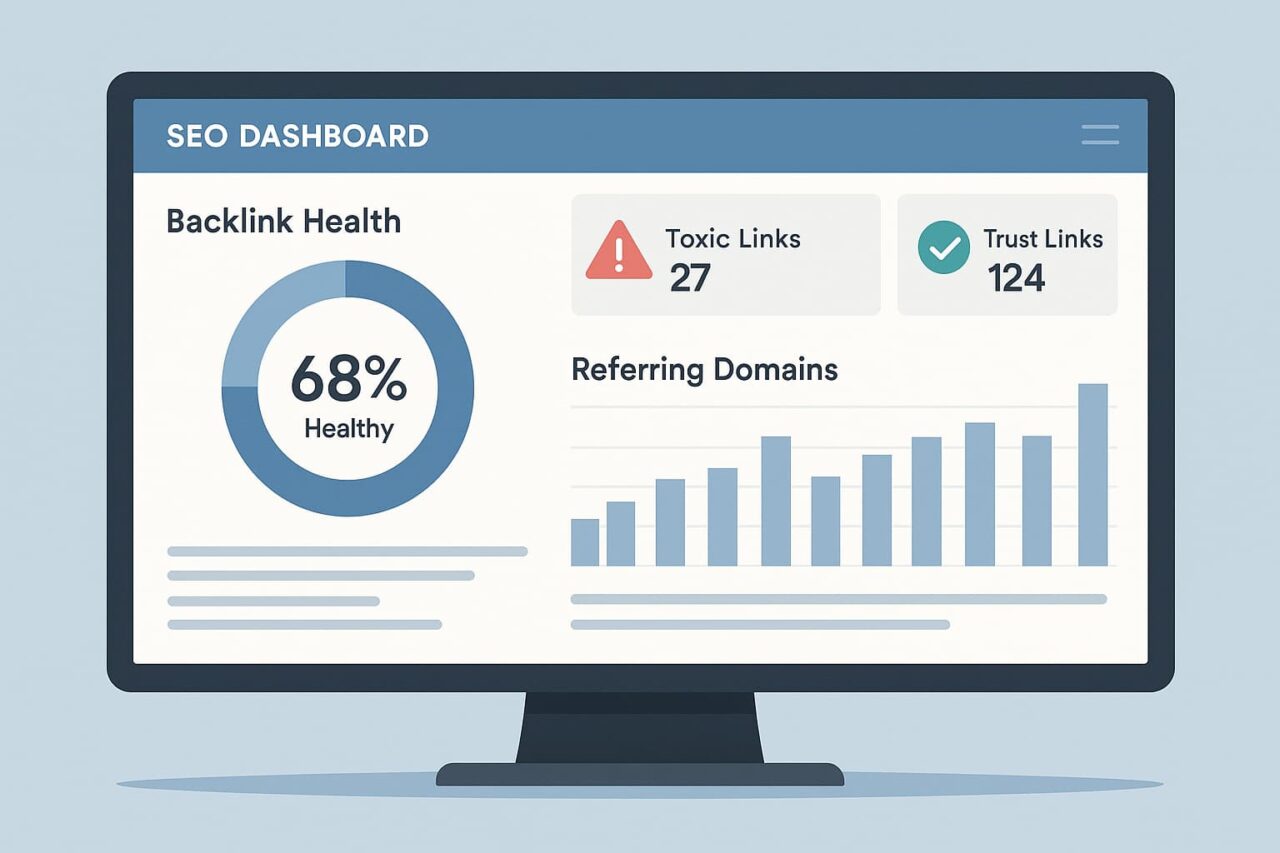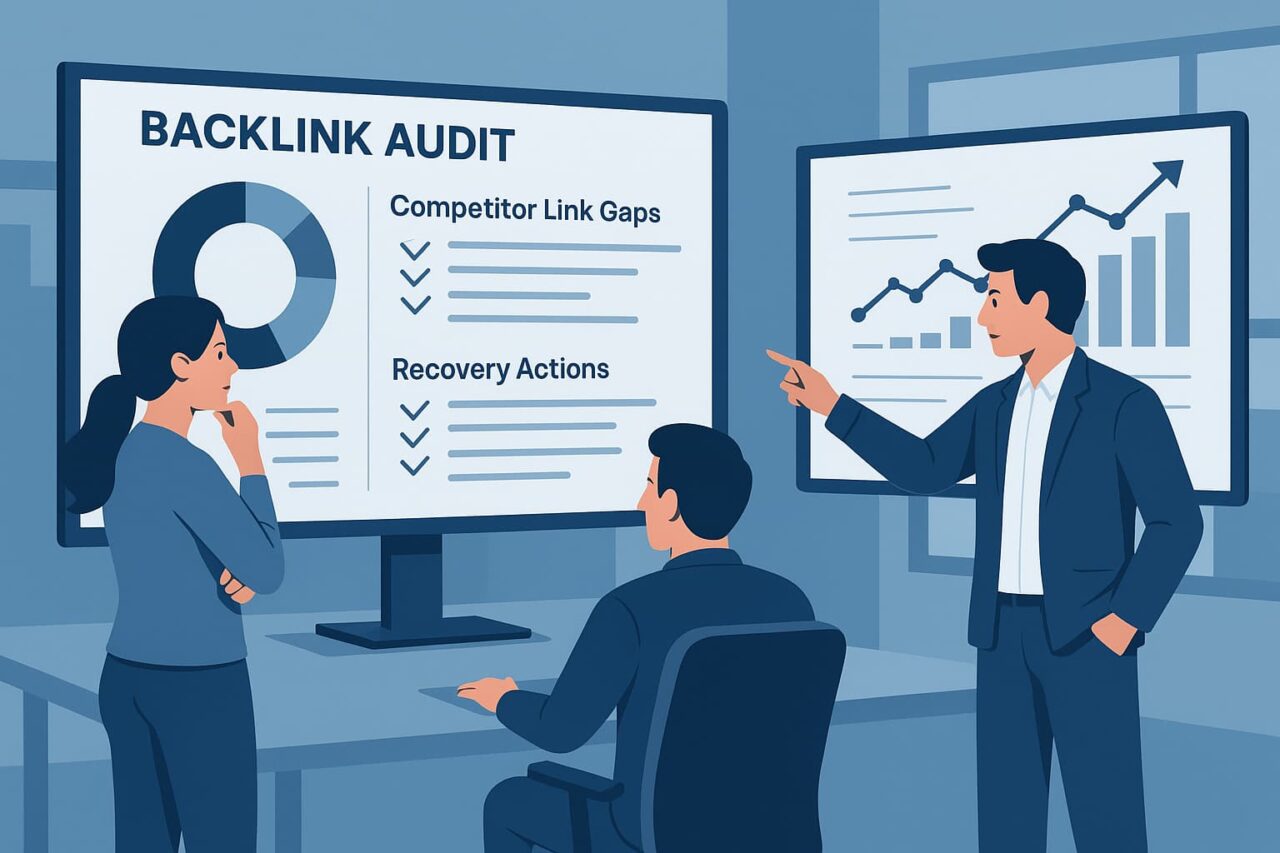
Enterprise-Level Link Building Audit Services: Who Needs Them?
Links are still a cornerstone of SEO, but not all of them help your site. Low-quality, spammy, or toxic backlinks can drag down your rankings and even damage your online reputation. For large businesses, a bad link profile is especially risky: it can trigger major drops in organic traffic, hurt revenue, and even lead to manual penalties from Google.
Enterprise-level link audits are essential. They don’t just list your backlinks—they identify toxic ones, recover lost links, and provide a data-driven strategy to improve your SEO. If your business relies on organic traffic, skipping a thorough link audit is too risky.
What Does a Link Building Audit Involve?
A proper link-building audit goes beyond just scanning backlinks. It thoroughly examines your site’s link profile—identifying toxic links, spotting missed opportunities, and ensuring everything aligns with SEO best practices.
1. Comprehensive Backlink Scan
A proper link audit requires a complete backlink scan. Instead of relying on a single data source, an enterprise-level audit pulls data from multiple SEO tools—like Ahrefs, Majestic, Moz, and Google Search Console—since no tool captures every backlink. Some links, especially from newer or less authoritative sites, may appear in one database but not another.
The audit also checks historical backlink trends, spotting sudden spikes in low-quality links (potential negative SEO) or drops in valuable ones (lost opportunities). The goal is to compile a full list, including niche forums, old directories, or foreign domains that basic tools might miss.
2. Link Quality Assessment
Once all backlinks are identified, each is evaluated based on:
- Relevance – Links from related sites (like a finance blog linking to an investment firm) boost SEO more than random ones.
- Authority – Trusted sources (.edu, .gov, top industry sites) help rankings—spammy links can hurt you.
- Anchor Text – Avoid overused keyword anchors. Mix branded, natural, and some optimized phrases.
- Placement – Links in the main content work best. Sidebars, footers, or forum comments add little value.
This separates high-value backlinks from harmful or useless ones, ensuring only quality links impact rankings.
3. Toxic Link Detection & Removal

Bad backlinks can tank your rankings. We’re talking spammy directory listings, sketchy PBN links, or random irrelevant sites—the kind that gets you penalized by Google.
Here’s how to fix it: First, try getting them removed by contacting the website owners directly. If that doesn’t work (and let’s be real, some won’t cooperate), your next step is filing a disavow request with Google to cut ties with those toxic links.
This cleanup isn’t just busywork—it protects your site’s rankings by keeping the quality links and ditching the garbage. If your traffic suddenly drops or you suspect a competitor’s playing dirty, this should be your first move.
4. Lost Link Recovery
Backlinks aren’t permanent—high-quality links can disappear over time due to website migrations, content updates, broken pages, or even competitors persuading sites to remove your links. Losing authoritative backlinks can hurt rankings just as much as toxic links.
A detailed link-building audit tracks these lost links by comparing historical backlink data with current profiles. Once identified, the recovery process includes:
- Broken Link Outreach – If a linking page no longer exists, the team finds alternative pages on the same site where your link could be placed.
- Reconnection Campaigns – Contacting webmasters who previously linked to your content but removed the link, offering updated resources or incentives to reinstate it.
- Content Updates – Sometimes, outdated or deleted content caused the link loss. Refreshing or republishing that content can help regain lost links.
5. Competitive Link Gap Analysis
A thorough link audit isn’t just about your backlinks—it’s also about studying your competitors’ links. This uncovers missed opportunities, like authoritative sites linking to them but not you. By comparing profiles, you can spot gaps in directories, news sites, and blogger partnerships.
6. Actionable Recommendations
Beyond only providing diagnostics, a thorough link building audit offers a strategic blueprint for both short-term enhancements and long-term link-building success. The final report provides straightforward guidance across four critical areas:
- Which links to disavow.
- Where to build new, high-quality links.
- What type of content attracts authoritative backlinks.
- How to diversify anchor text naturally.
Who Needs an Enterprise-Level Link Building Audit?
If your business depends on search traffic, a link-building audit is worth it. Enterprise audits don’t just list backlinks—they analyze quality, expose competitor gaps, and uncover growth opportunities. For big brands, even minor SEO tweaks can drive real results.
1. Large E-Commerce Websites
E-commerce sites with thousands of product pages often end up with toxic backlinks—whether from shady affiliate marketers, duplicate product pages, or scraper sites stealing content. A proper link audit doesn’t just spot these bad links; it also finds real opportunities for high-quality backlinks.
The real value comes from removing the bad links while simultaneously building connections with industry blogs, credible review platforms, and established news sites. For major online retailers, this dual approach of cleaning up and building up is essential for maintaining strong search rankings in competitive markets.
2. SaaS & Tech Companies
For your SaaS or IT company, strong backlinks are similar to digital recommendations; they build trust and raise your search engine ranks. The best ones come from respected tech sites, industry news sources, and engaged niche communities.
This analysis helps prioritize efforts—securing spots in product reviews, sharing expert opinions, or joining meaningful discussions—rather than pursuing low-impact links. For businesses investing in content marketing, an audit ensures each link contributes to SEO growth.
3. Financial & Legal Services
Google pays extra attention to websites in finance and law. These sites need to be extra careful about their backlinks because even one bad link can cause ranking problems.
Regular link checks help find and remove risky links from questionable sources while making sure most links come from trusted places like government websites, universities, or well-known industry sites. This is important because Google holds these types of businesses to higher standards.
4. Websites Recovering from Penalties
If Google has penalized a website or if rankings have suddenly dropped, a link audit is the first step to fix the problem. The audit finds all the bad links—whether they were created by mistake, came from poor SEO work, or were made by competitors trying to cause harm. It looks at when these links appeared and where they came from. This information helps create the right disavow file (a list of links to ignore) and provides proof of cleanup efforts when asking Google to reconsider the penalty.
5. Companies Scaling Their SEO Efforts
Businesses spending money to grow their SEO need link audits to make sure they’re getting good value. The audit shows which links are actually helping rankings and which types are worth pursuing. It checks if the links are growing at a natural rate that search engines will trust. For companies expanding to new areas, it verifies that they have the right local links. The results help focus efforts on what really works while avoiding tactics that could cause problems later. This makes sure the SEO budget is spent effectively for long-term growth.
Choosing a Reliable Link Building Audit Provider

Not all SEO firms provide the same degree of quality. Some do simple audits with a single tool, whilst others thoroughly examine your backlinks, revealing real risks and possibilities. A dependable provider should:
- Use multiple data sources – Not just one tool, but a combination for accuracy.
- Deliver clear, actionable reports – No confusing spreadsheets—just straight-up insights.
- Help with disavow files – If toxic links need removal, they should guide you through it.
- Have enterprise-level experience – They should know how to handle big, complex sites.
Don’t settle for a half-baked audit. The right provider makes all the difference.
One such provider is 3XE Digital, which specializes in link-building audits for businesses that need a deep, technical analysis of their backlink profile. Their process includes full backlink scans, toxic link detection, lost link recovery, and competitor gap analysis—without relying on automated, low-quality reports.
Conclusion
For large businesses, one bad link can cause serious damage. Regular link building audits keep your backlink profile clean and authoritative while finding new growth opportunities. Whether you’re recovering from penalties, scaling SEO, or operating in a regulated industry, a professional audit is essential. If your site relies on organic traffic, a detailed link audit isn’t just helpful—it’s necessary.